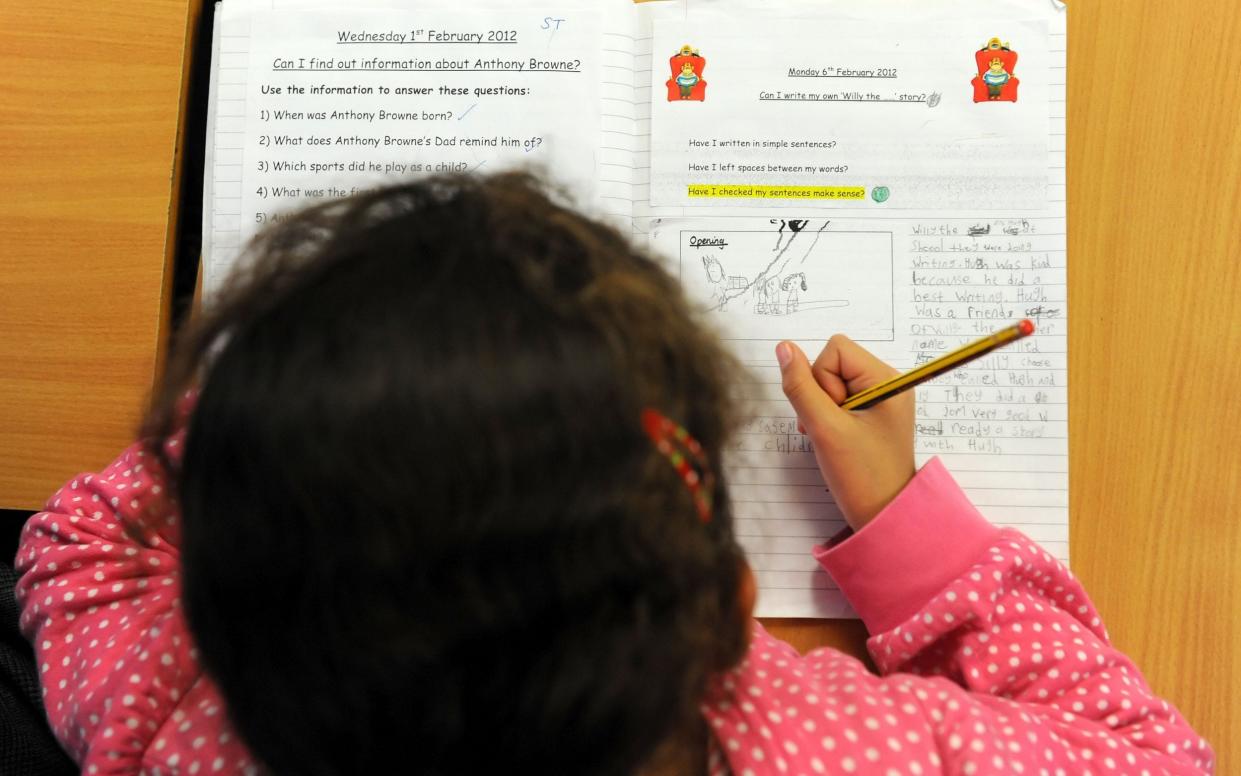School cash injection risks being ‘eaten up’ by teachers’ salaries

The new cash injection for schools risks being “eaten up” with paying teachers’ salaries, with a union boss warning that children “might not see anything at all”.
The extra funding for schools, announced by the Chancellor this week, may need to be spent on teachers’ pay rises rather than pupils’ education, Paul Whiteman, the general secretary of National Association of Head Teachers, has warned.
Teachers’ starting salaries are due to rise to £30,000 now that the public sector pay freeze has been lifted. Unions are concerned that so far no pot of funding has been provided to pay for this, meaning schools will be forced to dip into their existing budgets.
“Our worry is that the Chancellor has announced some more money, but with increasing energy bills and the lifting of the teachers’ pay freeze, children might not see anything at all,” said Mr Whiteman.
Earlier this week, Rishi Sunak, the Chancellor, announced that £1.8 billion will be made available to help children catch up on the learning which they lost during the pandemic, as well as an extra £4.7 billion of core funding for schools by 2024-25.
But Mr Whiteman warned that unless a separate tranche of cash is made available to fund teachers’ pay rises, these funds may have to be repurposed.
“Increasing costs that schools have no control over may well eat up the extra funding even before they have been able to use it in the way it’s intended,” he told The Telegraph.
“We are now concerned that the bold headline figures could well be eaten up with the lifting of the pay cap and rising energy costs.
“We don’t know yet what the restrictions will be in terms of accessing some of these funds. These might be earmarked for certain projects, but if you have to meet rising energy costs and a wage bill to pay out of your existing funding, you will still have to make cuts to education elsewhere.”
Geoff Barton, the general secretary of the Association of School and College Leaders, said that his “big concern” is that the Government “appears to believe that the increase it announced in the Budget to school funding is enough to cover the cost of raising teacher starting salaries to £30,000”.
He said: “This will be a significant cost on school budgets, which are already extremely stretched and we’re worried that this is a case of giving with one hand and taking away with another.
“Pay awards have to be fully funded by the Government. There’s a lot of detail to be worked through to work out the impact but it is fair to say that alarm bells are ringing.”
Officials at the Department for Education said that the majority of the new catch-up cash, £1 billion, will be earmarked for disadvantaged primary and secondary school children aged under 16.
Schools will be allowed to decide how to spend the money but they will be encouraged to use it for evidence-based interventions such as small-group tuition and extra-curricular activities like sports, drama and art.
Meanwhile, the remaining £800 million will allow sixth form students, aged 16 to 19, to have an extra 40 hours of lessons over the academic year, which is equivalent to one additional hour a week for each school or college.

